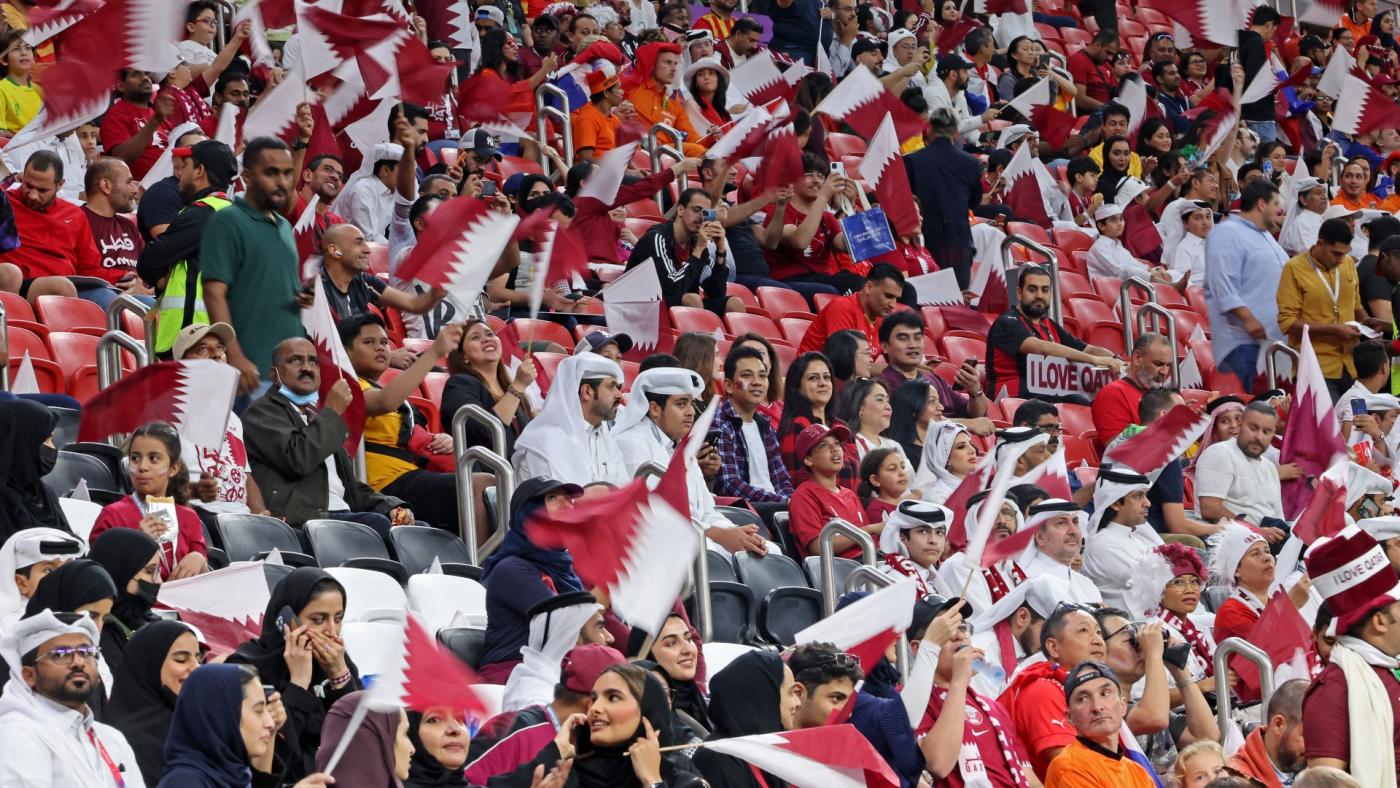
by middleeasteye.net — Qatar shipped in around 1,500 foreign fans, mainly from Lebanon, to support the country’s national team in this year’s World Cup, according to a report by the New York Times. The fans, who were also said to have come from Egypt, Algeria and Syria, were all “ultras” – a term originating in Italy, but now used worldwide, to describe followers known for their fanatical support. Authorities in host country Qatar had made the decision to bring in the fans amid concerns that matches involving the national team would otherwise only attract small numbers of low-key Qatari supporters.
The NYT said the main contingent had come from Lebanon after a test event was arranged in Beirut in April where hundreds of Lebanese students and fans of Nejmeh, a local club, were recruited to make a video at a stadium recreating the kind of intense atmosphere found at games attended by ultras. After impressing officials in Qatar, the fans were offered free flights, accommodation, match tickets and food, plus a small stipend, to support Qatar at the World Cup games. The newspaper said the fans arrived in mid-October, around a month before the tournament began, to rehearse their support, including newly written chants.
‘We share the same culture’
At Qatar’s first two games of the tournament, around 1,500 of the shipped-in fans could be seen wearing identical maroon T-shirts, one of Qatar’s flag colours, and singing the country’s national anthem. “It is our duty to support an Arab country,” one Lebanese fan told the NYT while attending Qatar’s second match of the tournament against Senegal on Friday. “We share the same language. We share the same culture. We are fingers on the same hand. “We want to show the world something special. You will see something special.” Despite the raucous fans chanting their support and banging drums, Qatar eventually lost the game 3-1.
Earlier in November, reports emerged that fans from several countries had been paid to travel to Qatar for the World Cup and given free tickets to the opening ceremony in return for acting as ambassadors for the tournament. Under the deal, fans were expected to like and re-share third-party posts about the tournament on social media, as well as flagging any content critical of the event.



